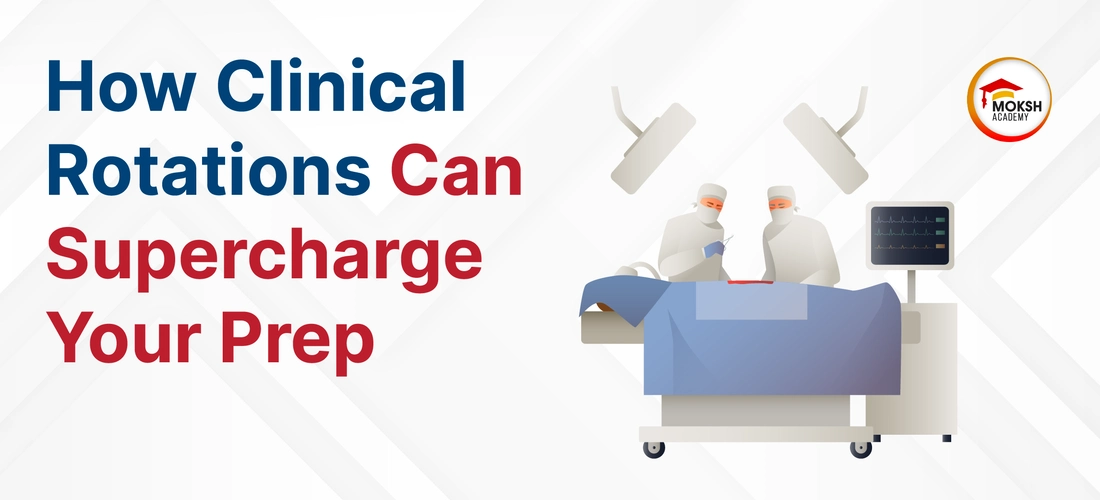
The dreaded USMLE Step 1 looms large in every medical student's mind, a gateway exam guarding the path to coveted residencies. But amidst the mountains of flashcards and endless practice questions, there lies a hidden gem: clinical rotations. Those seemingly endless weeks in the wards, shadowing doctors and battling beeps, hold a secret weapon for your Step 1 success.
What are Clinical Rotations?
Think of them as your real-world laboratory, where the textbook diagrams come alive. You'll rotate through different specialities, immersing yourself in the fascinating tapestry of human illness. From the bustling emergency room to the serene oncology ward, each rotation offers a unique perspective, enriching your understanding of medicine beyond the confines of a textbook.

Beyond the Syllabus: The Power of Observation
Forget rote memorization and syllabus-driven learning. Clinical rotations unleash your inner detective, honing your observation skills like never before. You'll learn to read the subtle cues in a patient's gait, the flicker in their eyes, and the language of their breath. Each encounter, each clinical pearl gleaned from your seniors, becomes a puzzle piece, fitting seamlessly into the grand picture of diagnosis and treatment.
From Patient Care to Exam Ace: Bridging the Gap
Suddenly, those Step 1 questions about obscure diseases and rare syndromes begin to resonate. You've seen them in action and felt the weight of their impact on real lives. The abstract concepts in your textbooks morph into tangible realities, making memorization a breeze. You'll understand the "why" behind every treatment and the intricate interplay of physiology and pathology that fuels each clinical scenario.
Tackling the Self-Doubt Monster: Confidence Boosting
Clinical rotations aren't just about knowledge acquisition; they're a confidence booster camp. Seeing yourself navigate real-world challenges, making clinical decisions under Mentors' guidance, and witnessing your impact on patients – these experiences chip away at your self-doubt, replacing it with a newfound sense of competence. You'll face challenges, but each hurdle overcomes strengthens your resolve and fuels your determination to conquer Step 1 under the guidance of MOKSH Academy.
The Power of Hands-on Learning: The Ultimate Study Hack
Forget passive learning and endless hours hunched over textbooks. Clinical rotations offer an immersive, interactive experience that engages all your senses. You'll learn by doing, participating in rounds, assisting with procedures, and witnessing the art of patient care firsthand. This active learning cements information in your memory like nothing else, making it readily accessible when you face those Step 1 questions.
But wait, isn't it too late?
Not at all! Even if you're in your later years of medical school, clinical rotations are still a goldmine for Step 1 preparation. Start by actively seeking opportunities to apply your textbook knowledge to real-life scenarios. Discuss cases with your seniors, ask questions, and don't shy away from challenging yourself. Remember, every patient encounter, every clinical pearl, is a step closer to Step 1 success.
Conclusion:
The clinical rotations. They're not just a requirement but an opportunity to supercharge your learning, boost your confidence, and close the gap between knowledge found in textbooks and practical application. Approach them with a curious mind, a thirst for knowledge, and a willingness to learn, even more importantly, discover the joy of practising medicine. Remember, clinical rotations are not just about Step 1; they're the foundation of your future career. Remember to document your experiences! Keep a logbook of exciting cases, challenging diagnoses, and insightful clinical pearls. These notes will be invaluable during Step 1 prep, providing a personalized and relevant study resource.



